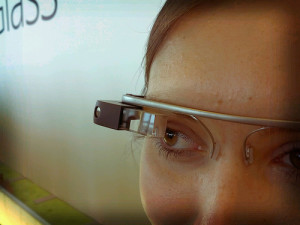 You thought I’d forget about you in January, didn’t you? We’re certainly cutting it fine, but since the new year must bring some new predictions here are nine areas that I think will see important milestones or changes in public sentiment in 2013:
You thought I’d forget about you in January, didn’t you? We’re certainly cutting it fine, but since the new year must bring some new predictions here are nine areas that I think will see important milestones or changes in public sentiment in 2013:
1) Digital Distribution marches ahead
Let’s begin with an obvious trend that is all but inevitable, and one that has clearly been gaining steam over the last few years. We now have the infrastructure (high speed broadband, mobile reading devices, content and distribution capacity) meeting public demand for convenience and instant access to confidently say that 2013 will be a tipping point for digital distribution.
High-street institutions such as HMV and Blockbuster slide into administration, whilst services such as Netflix, Lovefilm, Steam and Spotify offer enough content – particularly in the US market – to keep you entertained for a very long time. Negotiation of licensing is a hurdle, and many markets need further expansion of their catalogues to be viable, but digital distribution will prove to be king this year. This will also mean we hear a lot more about possible flaws of these business models (Spotify is often targeted, although perhaps not justifiably), and in the case of digital gaming there will be more debate about ownership and loss of service (if a service goes down do all of our purchases become worthless?). In the end we’re not going to have much of a choice but bow down to our new digital overlords.
2) Internet Freedom backlash
If the last few years have been about government and corporate intrusion on our lives and activities, this year will see a backlash that will draw a new line in the battle for internet freedom. Lines are being drawn between corporations and government (such as news of Google, Yahoo and others requiring search warrants), whilst there is also backlash occurring at a national level surrounding jurisdictional issues (i.e. MegaUpload case in New Zealand). We even have the French government preparing legislation that will allow a new form of taxation on the digital economy. Battle lines are being drawn.
Outside of this legal battle is the growth in services that market themselves on a privacy platform – whether it be Kim Dotcom’s new and improved encrypted Mega, or the continued rise of VPN services, a consumer-driven approach to internet privacy and freedom will see large gains in 2013.
3) The bigger they are, the harder they fall…
There are a number of tech-focused companies that seem untouchable at this point (Apple, Google, Facebook etc.), which is almost always an indicator that they are going to over-extend or make a drastic misstep and face the consequences. Apple is rapidly losing its dominance, and only a few days ago lost its coveted crown at the top of the corporate heap, and expect that to continue and gain steam this year as a business built on consumer loyalty begins to see that zealous fan base erode. Facebook hits its market saturation point, and fatigue will set in leading to lower levels of usage and dropping user numbers in a few geographic areas. Whilst Google plays both sides of the privacy debate and faces greater scrutiny into its total dominance of our online lives, with an increasing cynicism towards the famous motto ‘Don’t be Evil’ brought about by high-profile privacy breaches and consumer tracking practices.
Which one will see a big hit this year? Likely all of them…but if I had to put money on it, I’d say that Apple is set up for a big drop in influence by diluting its product line with an increasing number of iterative releases at high-end prices, whilst losing a great deal of consumer loyalty in the process as people shift over to the likes of Samsung as Android continues to destroy the competition.
4) Augmented reality begins now
 I can’t seem to stop mentioning Google here, but Google Glass will lead the way for augmented reality as a topic that the average person will understand and begin to see the utility of. No longer a novelty item on our smartphones or handheld consoles, attempts will be made to position this as a lifestyle enhancer as the function is included in an increasing number of applications and products.
I can’t seem to stop mentioning Google here, but Google Glass will lead the way for augmented reality as a topic that the average person will understand and begin to see the utility of. No longer a novelty item on our smartphones or handheld consoles, attempts will be made to position this as a lifestyle enhancer as the function is included in an increasing number of applications and products.
Unlike the 3D-television fad, the fashion aspect of this new market will be properly taken into account and designs will reflect the desire for non-intrusive products that will prove successful from the outset. Your augmented reality begins this year, and it only gets deeper from here on out!
5) Social media landscape consolidates
The last five years has seen a boom in social media companies and attempts to create the ‘next big thing’ following the sustained success of Facebook and Twitter. Almost all of which have only seen moderate success (relatively speaking) before retreating somewhat (FourSquare seems like a big name that might fall away this year) or being bought out by a larger company (Facebook snapping up Instagram). Expect more high-profile purchases this year of every new innovation that even begins to take hold as the larger companies with deep pockets try to maintain market share.
What we are seeing are the beginnings of the next wave of social media, which is the integrated platform. Google is leading the way in trying to implement an all-in-one package (although Microsoft might not be too far behind them…), and Facebook is now making moves into search functionality with Graph Search. Whether or not this integrated approach will prove successful in the long run is hard to predict because we’re notoriously fickle with such platforms. But we’ve got a number of brands with embedded user-bases that are certainly going to try their best.
Ultimately the opposite needs to occur, movement towards decentralised systems which allow far greater controls over data ownership, but the current trend will continue to be towards the mega-corporate model of conglomeration and continued focus on data mining revenue capacity. Definitely cause for concern, but can we fight the impulsive nature and vote with our (virtual) feet?
6) Crowd-funding will be tested by failure
2011-2012 was the launch of the crowd-funding era, with the likes of Kickstarter and Indiegogo leading the charge. Anybody with a good idea and some marketing nous could get large amounts of funding to complete projects that only a few years ago would never have been green-lighted. All indications are that this will continue to gain steam and become even more important, bringing with it a greater degree of product innovation and experimentation. What we haven’t seen yet, however, is a serious test of the model through failure of a massive project because of lofty visioning, misconduct, or even outright fraudulent behaviour.
We’re starting to see very large scale projects, breaking the $10 million dollar mark, which bring with them a higher chance of damaging consumer confidence should they fail. Once these stories eventuate (and they have been already) and hit the mainstream news the general public will latch onto this negative sentiment – it’s likely only going to be a blip in consumer confidence, but I think it’s going to hit this year with something big. Let’s see what happens…and hope that I’m wrong.
7) Ethics of technology becomes more prominent
We’ve seen the breakdown of trust and confidence in many sectors recently, from finance to politics to media institutions. The focus on defining ethical boundaries will extend into the technology and medical sphere this year, with more discussion on augmented cognition and human enhancement; synthetic food production (such as 3D meat printing); implications of data security and cases of social profiling; and more focus on the impact of technological innovation on global work standards (Foxconn being a prominent example) and resource usage.
This sense of ethical questioning will coincide with a large degree of positive optimism surrounding medical advancements. A large number of advancements will see successful implementation over the coming year, consider the wave of successful limb transplants we have seen recently, and these will be more highly reported then the ethical issues in other areas leading to an overall positive approach to technological advancement but with an ethical edge. The way it should be!
8) Videogames recognised as literature and art
 I’m amazed that even in 2012 we still see attempts by the gliteratti to defend their hallowed halls of culture from the rise of the videogame medium. This notion that videogames are mere trivial pieces of entertainment without literary or artistic merit will be decimated in the public perception.
I’m amazed that even in 2012 we still see attempts by the gliteratti to defend their hallowed halls of culture from the rise of the videogame medium. This notion that videogames are mere trivial pieces of entertainment without literary or artistic merit will be decimated in the public perception.
Games such as The Walking Dead and Journey from 2012 have proven that these interactive experiences are allowing deep levels of emotional engagement, and the industry wide praise of these games will not only mean that more mechanics-light, experience-deep games will go into production; but also that they will see larger audiences and the subsequent awareness that the medium contains infinite creative potential to explore some deeply impacting issues will become more commonplace.
9) 21st Century Space Race
Whilst government funding for NASA decreases, we’re seeing this replaced by private sector interest in space tourism and industry. This will culminate in 2013 with a number of high profile projects. From Virgin Galactic’s first flight, to SpaceX continuing the fill the gap that NASA leaves behind, to the Lynx/Axe Space Academy vying for our marketing attention and promoting visions of personal space flight made available to all.
These commercial ventures will be joined by accelerated moves from a number of countries that seek to enter the exclusive club of nations with developed and effective space programmes. India is set to launch a Mars mission at the end of the year; Iran just succeeded in putting a monkey in space; Russian space budget continues to increase; whilst China’s five year plan continues, with a robotic lunar lander scheduled for later this year. Amongst all of this, what happens if the little Wall-E like Curiosity Rover finds evidence of ‘Life on Mars’…?
There you have it, what do you think about these predictions? Which ones do you think will come true this year, which ones will take longer, and which ones are just plain wrong? Make sure to add some of your own by commenting below!





